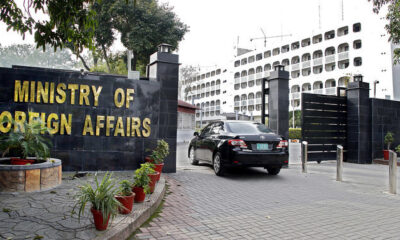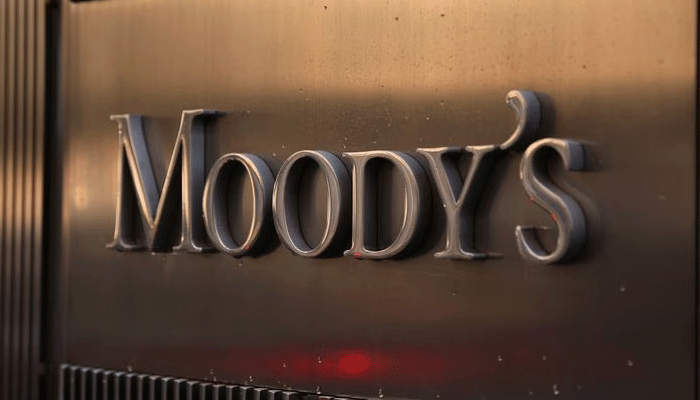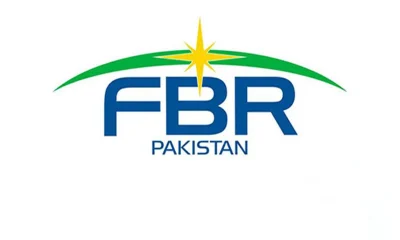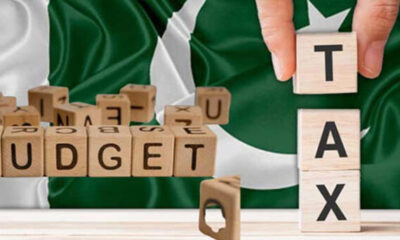- Moody’s says weak governance threat to policy execution.
- Hopes expcted external financing to help cut default risks.
- Says liquidity, external vulnerability risks continue to increase.
SINGAPORE: Moody’s Investors Service Tuesday slashed Pakistan’s sovereign credit rating to ‘Caa3’ amid critical loan talks with the International Monetary Fund (IMF), arguing that the worsening liquidity situation was “significantly raising default risks.”
The cash-strapped nation has been in talks with the IMF to secure a $1 billion loan, which has been pending since late last year over policy issues. It is part of a stalled $6.5 billion bailout package, originally approved in 2019.
Moody’s has also reduced the rating for the senior unsecured MTN programme to (P)Caa3 from (P)Caa1. Concurrently, it has also changed the outlook to stable from negative.
“In particular, the country’s foreign exchange reserves have fallen to extremely low levels, far lower than necessary to cover its import needs and external debt obligations over the immediate and medium term,” said Moody’s in a statement.
Weak governance
The rating agency said that although the government was implementing some tax measures to meet the conditions of the International Monetary Fund (IMF) programme and the disbursement of a loan tranche might help to cover the country’s immediate needs, weak governance and heightened social risks impede Pakistan’s ability to continually implement the range of policies that would secure large amounts of financing and decisively mitigate risks to the balance of payments.
Moody’s said that the stable outlook reflected its assessment that the pressures that Pakistan was facing were consistent with a Caa3 rating level, with broadly balanced risks.
Default risks to reduce
“Significant external financing becoming available in the very near term, such as through the disbursement of the next tranches under the current IMF programme and related financing, will reduce default risk potentially to a level consistent with a higher rating.”
“However, in the current extremely fragile balance of payments situation, disbursements may not be secured in time to avoid a default,” Moody’s statement added.
“Moreover, beyond the life of the current IMF programme that ends in June 2023, there is very limited visibility on Pakistan’s sources of financing for its sizeable external payments needs,” it added.
Moody’s said that the downgrade to Caa3 from Caa1 rating also applies to the backed foreign currency senior unsecured ratings for the Pakistan Global Sukuk Programme Co Ltd. The associated payment obligations are, in Moody’s view, direct obligations of the Government of Pakistan.
Rationale for downgrade
In its rationale for the downgrade to Caa3, Moody’s said that the government liquidity and external vulnerability risks have risen further since Moody’s last review in October 2022.
“Pakistan’s foreign exchange reserves have declined to a critically low level, sufficient to cover less than one month of imports. Amid delays in securing official sector funding, risks that Pakistan may not be able to source enough financing to meet its needs for the rest of fiscal 2023 (ending June 2023) have increased.”
“Beyond this fiscal year, liquidity and external vulnerability risks will continue to be elevated. At the same time, prospects of the country materially increasing its foreign exchange reserves are low,” it said.
External financial needs
Overall, Moody’s estimates that Pakistan’s external financing needs for the rest of the fiscal year ending June 2023 to be around $11 billion, including the outstanding $7 billion external debt payments due. The remainder includes the current account deficit, taking into account a sharp narrowing as imports have contracted markedly.
Moody’s said that in order to meet its financing needs, Pakistan would need to secure financing from the IMF and other multilateral and bilateral partners.
Critical ninth IMF review
“Moody’s assumes successful completion of the ninth review of the existing IMF programme, although this is not secured yet. This would in turn catalyse financing from other multilateral and bilateral partners.”
“At the same time, the government will also need to obtain the rollover of the $3 billion China SAFE deposits and secure $3.3 billion worth of refinancing from Chinese commercial banks for the rest of this fiscal year. Of this $3.3 billion, Pakistan has already received a deposit of $700 million from the China Development Bank on 24 February 2023,” it said.
Extremely fragile
The rating agency said that while this year’s external payments needs may be met, the liquidity and external position next year would remain extremely fragile.
“Pakistan’s financing options beyond June 2023 are highly uncertain. It is not clear that another IMF programme is under discussion and if it does happen, how long the negotiations would take and what conditions would be attached to it.”
“However, in the absence of an IMF programme, Pakistan is unlikely to unlock sufficient financing from multilateral and bilateral partners,” it said.
According to Moody’s, headline inflation is likely to rise further as energy prices increase in tandem with the removal of energy subsidies.
At the same time, reform measures to raise fiscal revenue are likely to remain key to unlocking further financing from the IMF, as they will help to alleviate debt sustainability risks, as per the agency.
Continued IMF engagement must
“Continued IMF engagement, including beyond the current programme, will likely help to support additional financing from other multilateral and bilateral partners, which can reduce default risk if this is achieved urgently and without further raising social pressures,” said Moody’s in its statement.

 Latest News2 days ago
Latest News2 days ago
 Business2 days ago
Business2 days ago
 Business1 day ago
Business1 day ago
 Latest News2 days ago
Latest News2 days ago
 Business2 days ago
Business2 days ago
 Latest News2 days ago
Latest News2 days ago
 Business1 day ago
Business1 day ago
 Latest News2 days ago
Latest News2 days ago



















